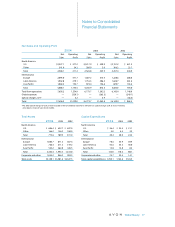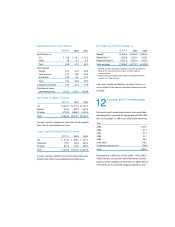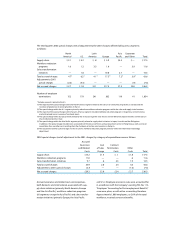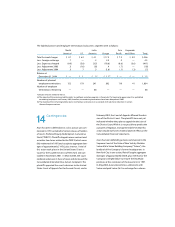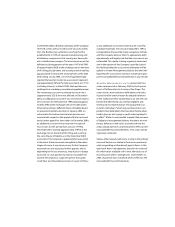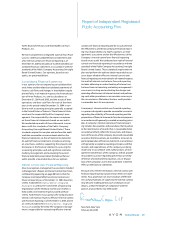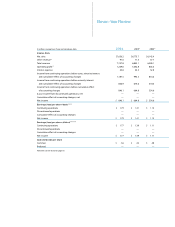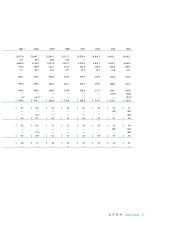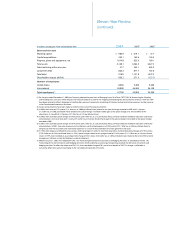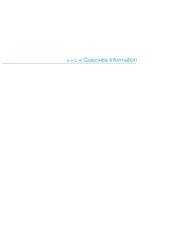Avon 2004 Annual Report Download - page 63
Download and view the complete annual report
Please find page 63 of the 2004 Avon annual report below. You can navigate through the pages in the report by either clicking on the pages listed below, or by using the keyword search tool below to find specific information within the annual report.
In December 2002, a Brazilian subsidiary of the Company
received a series of excise and income tax assessments
from the Brazilian tax authorities asserting that the
establishment in 1995 of separate manufacturing and
distribution companies in that country was done with-
out a valid business purpose. The assessments assert tax
deficiencies during portions of the years 1997 and 1998
of approximately $86.0 at the exchange rate on the date
of this filing, plus penalties and accruing interest totaling
approximately $146.0 at the exchange rate on the date
of this filing. In July 2003, a first-level appellate body
rejected the basis for income tax assessments represent-
ing approximately 76% of the total assessment, or $177.0
(including interest). In March 2004, that rejection was
confirmed in a mandatory second-level appellate review.
The remaining assessments relating to excise taxes
(approximately $55.0) were not affected. In December
2003, an additional assessment was received in respect
of excise taxes for the balance of 1998, totaling approx-
imately $99.0 at the exchange rate on the date of this
filing and asserting a different theory of liability based
on purported market sales data. In January 2005, an
unfavorable first administrative level decision was
received with respect to the appeal of that assessment
and a further appeal has been taken. In December 2004,
an additional assessment was received in respect of
excise taxes for the period from January 1999 to
December 2001, totaling approximately $199.0 at the
exchange rate on the date of this filing and asserting
the same theory of liability as in the December 2003
assessment. The Company is appealing that assessment.
In the event that assessments are upheld in the earlier
stages of review, it may be necessary for the Company
to provide security to pursue further appeals, which,
depending on the circumstances, may result in a charge
to income. It is not possible to make a reasonable esti-
mate of the amount or range of expense that could
result from an unfavorable outcome in respect of these
or any additional assessments that may be issued for
subsequent periods. The structure adopted in 1995 is
comparable to that used by many companies in Brazil,
and the Company believes that it is appropriate, both
operationally and legally, and that the assessments are
unfounded. This matter is being vigorously contested
and in the opinion of the Company’s outside counsel
the likelihood that the assessments ultimately will be
upheld is remote. Management believes that the likeli-
hood that the assessments will have a material impact
on the Consolidated Financial Statements is also remote.
Scheufler v.Estee Lauder,Inc.,et al. is a purported class
action commenced in February, 2005 in the Superior
Court of California for the County of San Diego. The
action names Avon and other defendants and seeks
injunctive relief and restitution for alleged violations
of the California Unfair Competition Law and the Cali-
fornia False Advertising Law, and for negligent and
intentional misrepresentation. The purported class
includes individuals “who have purchased skin care
products from defendants that have been falsely adver-
tised to have an ‘anti-aging’ or youth inducing benefit
or effect”. While it is not possible to predict the outcome
of litigation, management believes that there are meri-
torious defenses to the claims asserted and that this
action should not have a material adverse effect on the
Consolidated Financial Statements. This action will be
vigorously contested.
Various other lawsuits and claims, arising in the ordinary
course of business or related to businesses previously
sold, are pending or threatened against Avon. In the
opinion of Avon’s management, based on its review of
the information available at this time, the total cost of
resolving such other contingencies at December 31,
2004, should not have a material adverse effect on the
Consolidated Financial Statements.





